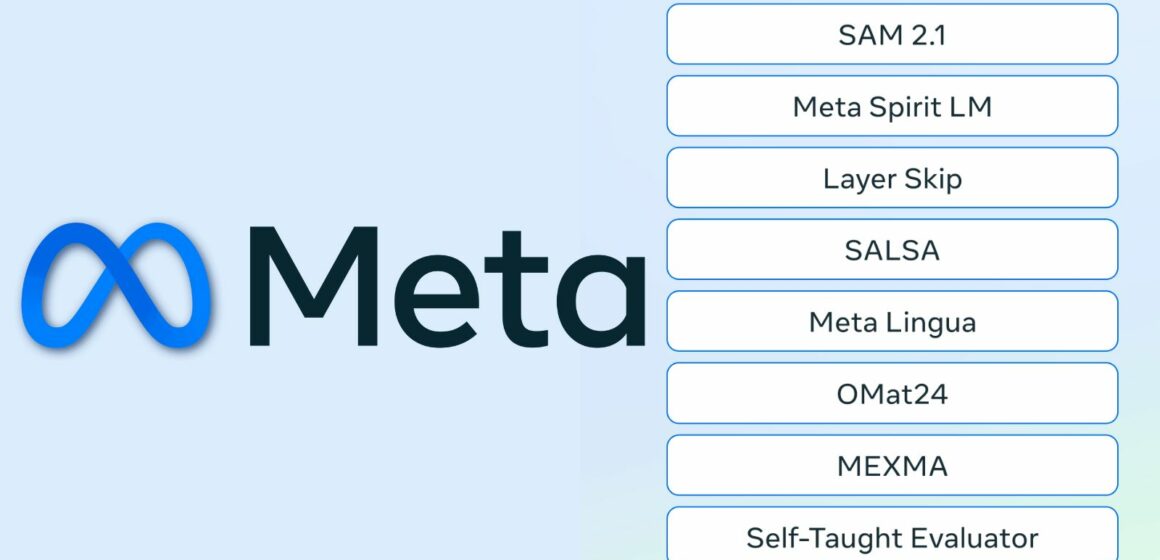Meta has taken a bold step in AI innovation with the release of two new models through its Fundamental AI Research (FAIR) division: the Self-Taught Evaluator and Spirit LM. These models are designed to push the boundaries of artificial intelligence by focusing on autonomous evaluation and integrated text-speech communication. Meta’s latest announcement highlights its ongoing commitment to developing state-of-the-art AI technologies and making them accessible to the wider research community.
As AI technology evolves, the ability for models to self-evaluate and communicate across various mediums is becoming increasingly important. Meta’s new models address these needs and promise to reshape the landscape of AI development.
Self-Taught Evaluator: Reducing the Need for Human Oversight
A key feature of Meta’s new release is the Self-Taught Evaluator. In traditional AI model development, human oversight plays a crucial role in evaluating model performance and ensuring the accuracy and fairness of outputs. Meta’s Self-Taught Evaluator aims to reduce this reliance on human intervention by enabling AI systems to assess their own performance.
This model is built upon the concept of the “chain of thought” mechanism, allowing AI to reflect on the steps taken before delivering an output. This mechanism, which has also been explored by OpenAI in their recent models, enables AI to break down complex tasks into manageable parts, enhancing both decision-making and accuracy.
By incorporating this mechanism into the Self-Taught Evaluator, Meta aims to create an AI model that can identify and correct errors autonomously, providing developers with more time to focus on refining algorithms and exploring new applications. The model’s potential to streamline the evaluation process makes it a significant breakthrough in the field, setting new benchmarks for AI development.
Spirit LM: Blurring the Line Between Text and Speech
Alongside the Self-Taught Evaluator, Meta introduced Spirit LM, a model that can seamlessly integrate text and speech. The ability to work with both text and spoken content allows Spirit LM to deliver more dynamic and versatile user interactions, making it a valuable tool for various AI applications.
Spirit LM’s unique capability lies in its ability to process input in one form—text or speech—and generate output in the other. This means that Spirit LM can transcribe spoken words into text or convert written text into natural-sounding speech. It can even engage in real-time dialogues that blend both mediums, making it ideal for virtual assistants, customer support, and educational tools.
The launch of Spirit LM underscores Meta’s vision of creating more intuitive AI systems that can adapt to the needs of users. As AI becomes a more integral part of everyday life, the ability to interact with AI through multiple forms of communication is likely to become a key differentiator in the market.
Meta’s AI Strategy: Competing with Industry Leaders
Meta’s recent AI model releases come at a time when other tech giants like Google and Anthropic are also investing heavily in AI research. These companies have explored concepts like Reinforcement Learning from AI Feedback (RLAIF), which, although not yet available for public use, aim to enhance AI’s ability to learn from its own outputs.
Meta’s decision to release its models to the public could position it as a leader in AI research. By providing access to these advanced models, Meta not only showcases its technological prowess but also fosters a collaborative environment where researchers and developers can build upon its work. This strategy aligns with Mark Zuckerberg’s vision of making advanced AI tools available to a wider audience, empowering innovation across the industry.
The Implications of Meta’s Self-Taught Evaluator and Spirit LM
The impact of Meta’s Self-Taught Evaluator and Spirit LM could extend across various sectors, from tech development to user-facing applications. By automating the evaluation process, the Self-Taught Evaluator could accelerate the development of more robust and reliable AI models, allowing for quicker iteration cycles and more refined results.
Spirit LM, on the other hand, opens up new possibilities for user interaction with AI systems. With its ability to integrate text and speech, Spirit LM is well-suited for applications like customer service bots, AI-based language learning tools, and even entertainment platforms that require natural-sounding voice interactions. This model has the potential to transform how users interact with AI-powered systems, offering a more engaging and accessible experience.
Meta’s Vision for the Future of AI Development
Meta’s launch of the Self-Taught Evaluator and Spirit LM reflects its long-term vision of achieving advanced machine intelligence. By developing models that can evaluate their own performance and communicate naturally with users, Meta aims to make AI systems more autonomous and user-friendly. This vision is crucial as AI continues to play an increasingly important role in sectors like healthcare, education, and customer service.
Mark Zuckerberg has emphasized that making cutting-edge AI models accessible to researchers and developers is key to fostering innovation. By releasing these models to the public, Meta not only advances its own research agenda but also contributes to the global AI community’s efforts to build smarter, more capable AI systems.
A New Milestone in AI Evolution
With the release of the Self-Taught Evaluator and Spirit LM, Meta is setting a new standard in AI development. These models promise to reduce human involvement in AI evaluation and bring a new level of fluidity to AI communication. As the competition among tech giants in the AI space intensifies, Meta’s commitment to transparency and collaboration could be a game-changer.
The future of AI lies in models that can learn, adapt, and communicate naturally. Meta’s latest innovations suggest that this future may be closer than we think. As researchers and developers continue to explore the capabilities of these models, the possibilities for AI in everyday life are poised to expand, making AI more accessible and effective for all.


Leave a Reply